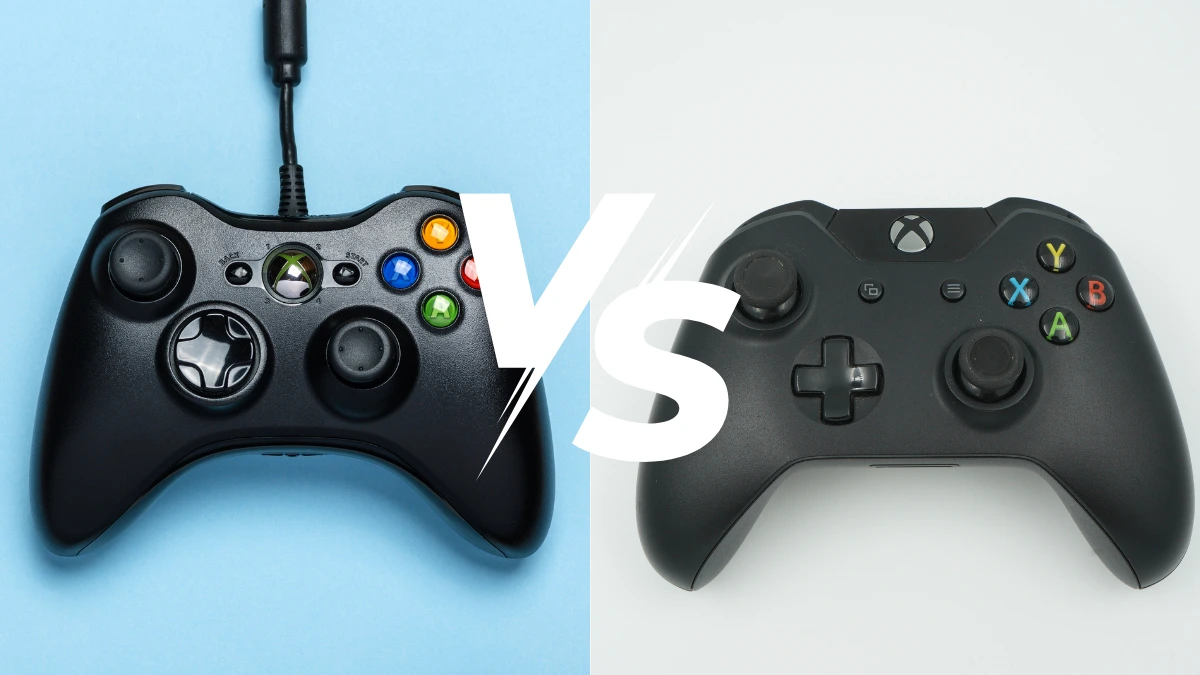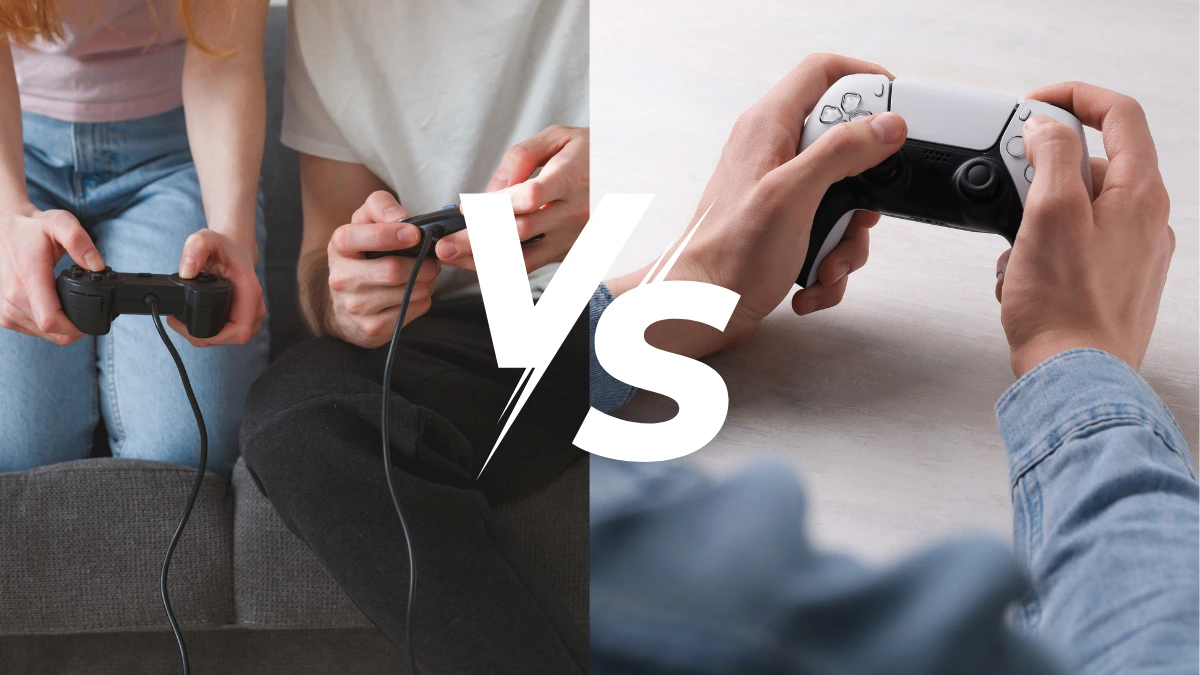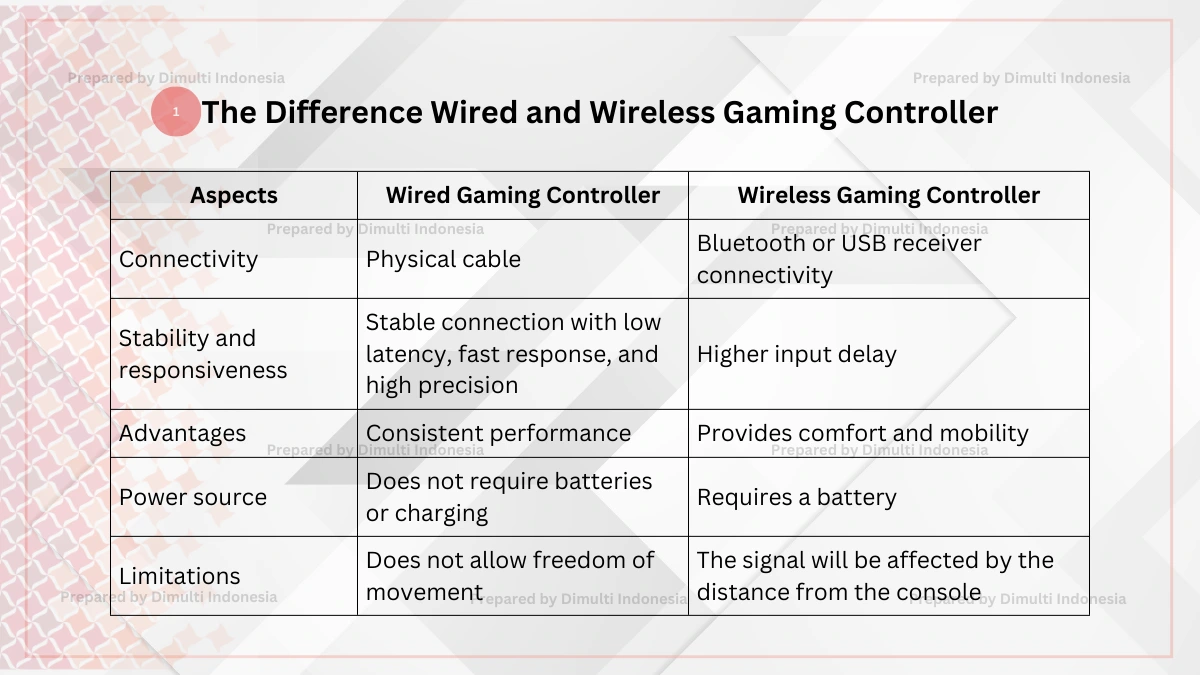Wired and wireless gaming controllers are the keys to give commands or input to a video game. Although both improve your game, the wired and wireless gaming controllers have some significant differences.
The differences between wired and wireless gaming controllers include connecativity, stability, responsiveness, control, power source, and limitations..
This article will delve into the important differences between wired and wireless gaming controllers to improve your game.
What is a Wired Gaming Controller?

A wired controller is a type of controller that connects directly via a USB cable. This type of controller offers a stable connection without delay because it is connected directly via a cable. However, the cable does limit the controller's range of motion.
What is a Wireless Gaming Controller?

A wireless controller is a type of controller that uses Bluetooth or 2.4 GHz WiFi connectivity. This type of controller certainly provides more freedom of movement. One thing to note about this controller is that the signal can sometimes be disrupted, especially if the room is too crowded with other electronic devices.
The Difference Between Wired and Wireless Gaming Controllers

Wired and wireless gaming controllers are both key to give commands or input to a video game. Here are six differences between wired and wireless gaming controllers:
1. Connectivity
Wired controller: Uses a physical cable to connect to a console or PC.
Wireless controller: Uses Bluetooth or USB receiver connectivity to connect wirelessly to a console or PC.
2. Stability and responsiveness
Wired controller: Has a stable connection with low latency. Suitable for games that require fast response and high precision.
Wireless controller: Generally has a higher input delay than wired controllers. This can certainly affect your gaming performance.
3. Control
Wired controller: Consistent performance because the signal is not interrupted by distance or interference from other devices.
Wireless controller: Provides comfort and mobility so you can move freely without annoying cables.
4. Power source
Wired controller: Does not require batteries or charging because it is directly connected via a cable.
Wireless controller: Requires a battery power source that needs to be recharged periodically.
5. Limitations
Wired controller: Does not allow freedom of movement because it is limited by the length of the cable.
Wireless controller: The signal will be affected by the distance from the console and the number of other devices nearby that also have a Bluetooth connection.
That’s the difference between wired and wireless gaming controllers that you can consider when choosing according to your personal needs.
If you want to play with a stable connection, minimal latency, and no need to worry about charging, a digital piano is a good choice. However, if you want freedom of movement, comfort, a neat appearance, and flexibility in playing, you can choose a wireless gaming controller.